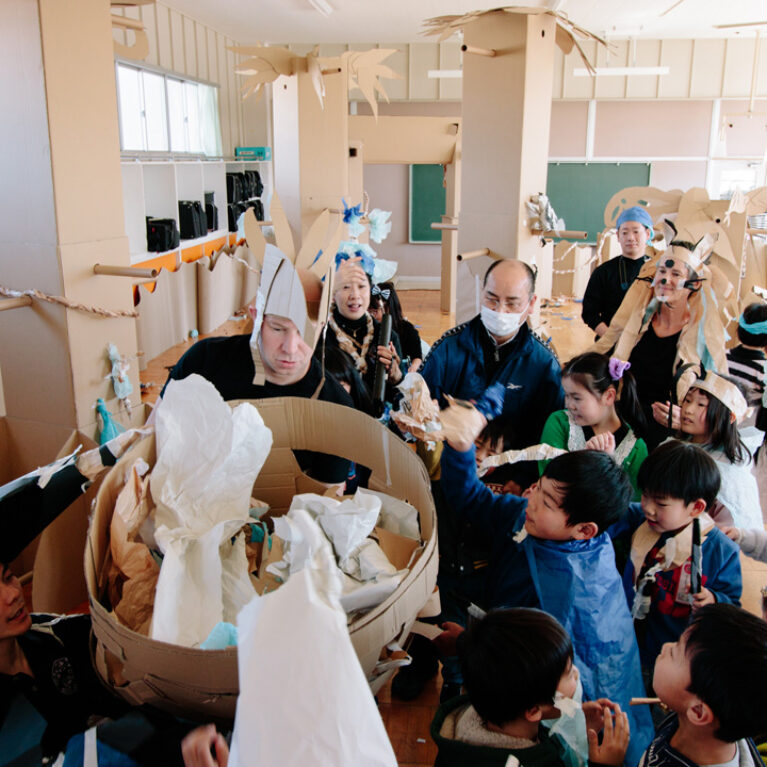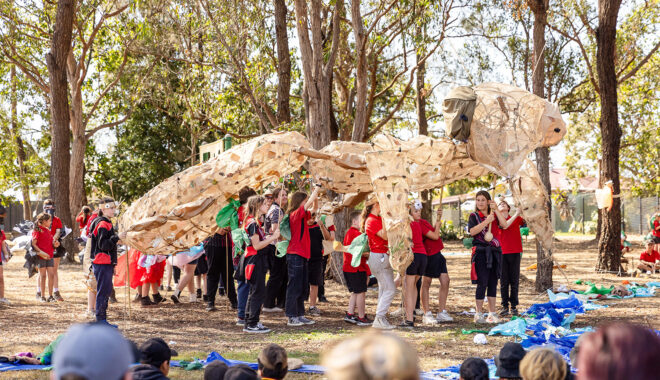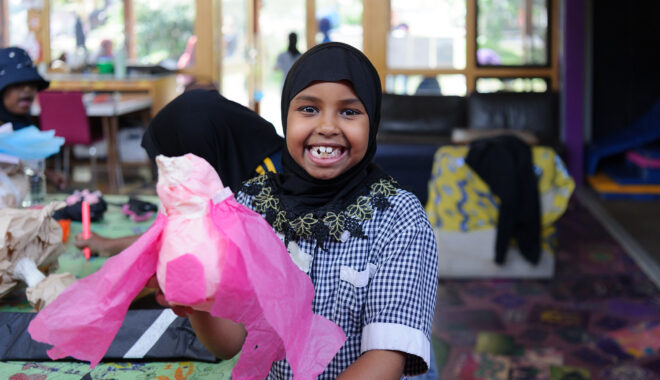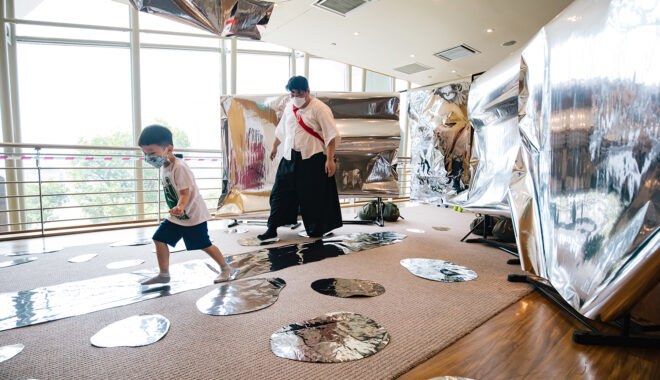Japan
Polyglot Theatre is honoured to have a warm, long-standing connection with Japan.
In 2011, the east coast was devastated by a massive tsunami and Minami Sanriku was one of the areas most deeply affected. As part of the Australian Government disaster recovery initiative, Polyglot was invited to visit the town, offering our creative play, art and theatre as healing tools for residents and children.
From this first project, Polyglot returned regularly throughout the community’s long journey of recovery. In 2013, we took a special installation of We Built This City (We Built This Town) to Minami Sanriku, along with a building project where children designed and built their own little dream houses. In a place where so many houses were lost, this was a powerfully hopeful project.
In 2015, we collaborated with NPO Acchi Cocchi from Yokohama, a Japanese organisation that delivers music and arts projects, focusing on disaster-affected communities in the Tohoku region. Together we made Tusgi Wa? (What Next?) in the form of a giant Kamishibai (a form of Japanese street theatre and storytelling) presenting a popular local story through drawings and puppetry. The work created links between Minami Sanriku elders and children, and demonstrated how recovery after a major disaster is more complex than simply rebuilding roads and infrastructure.
In 2018, again in collaboration with Acchi Cocchi, we presented performances of Paper Planet in all five Minami Sanriku elementary schools (Shizugawa, Tokura, Iriya, Isatomae and Natari) for students in Years 1 and 2.
In 2023, Polyglot was thrilled to return to Japan and reunite with Acchi Cocchi. Together, we delivered performances across the Yokohama region, in specialist schools, elementary schools, and a children’s hospice. This project had been postponed from 2020 due to COVID-19, and the subsequent travel and touring restrictions.
Our 2018 and 2023 tours were supported by the Australia-Japan Foundation of the Department of Foreign Affairs and Trade, and the Victorian Government through Creative Victoria.

“International collaboration for Polyglot is very important. We really value meeting new people, and working in different cultural contexts. It’s very rewarding as an artist, and really helps us to grow as our company. Every time we do a new collaboration, every time we work with a new community of families or children, we learn more.” Rainbow Sweeny, Producer.
In 2024, the Australian Embassy in Japan shared an article about the long-standing creative collaboration between Polyglot Theatre and Acchi Cocchi. What can we learn from each other’s art and culture, and how can we give back to society? Rainbow Sweeny, Polyglot Producer, and Mikako Atsuchi, Acchi Cocchi President, were interviewed. Read this here: japan.embassy.gov.au/tkyo/Polyglot-Acchi-Cocchi
Visit the Australian Embassy website










